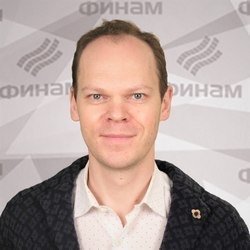Is the deficit of IT specialists a myth or reality?
There is a catastrophic shortage of IT specialists in Russia, but only for experienced employees. There are too many juniors, and employers aren’t ready to pay them well

Tatarstan is in the top 3 Russian regions with the biggest number of IT companies. It is outperformed only by Moscow and Saint Petersburg. A programmer, developer, analyst and system administrator are the most sought-after IT specialities in the republic. However, there is little job for data scientists and game designers in the region. The salary spectrum of an IT specialist in the republic is from 15 to 300,000 rubles. In Moscow, IT specialists can hope to get 600-800,000 rubles a month — everything depends on the speciality and work experience. Read in a review of Realnoe Vremya’s analytic staff about how serious the deficit of staff in the IT market is, how the migration of the population in 2022 influenced the situation, how many IT specialists Tatarstan lacks and how a junior can find a spot under the sun.
Realnoe Vremya’s analytic staff examined Russia’s IT market and singled out top 20 regions in the number of IT companies registered in them. Companies developing computer software and running an IT activity were used in the analysis.
Most of such companies are registered in Moscow (50,800), Saint Petersburg is second (14,400), the Republic of Tatarstan is third (7,800).
The top 20 regions with the biggest amount of IT companies included Moscow Oblast (nearly 6,000 IT companies), Sverdlovsk Oblast (3,900), Novosibirsk Oblast (3,600), Nizhny Novgorod Oblast (2,500), Chelyabinsk Oblast (2,200), Bashkortostan and Perm Krai (almost 2,000), Krasnoyarsk Krai (1,800), Voronezh Oblast (1,400), Irkutsk Oblast (1,300), Tyumen and Omsk oblasts (1,200), Udmurtia, Tomsk and Yaroslavl oblasts (1,100).
The smallest number of IT companies is registered in Baykonur (6), the Chukotka Autonomous District (7), the Nenets Autonomous District (28), the Jewish Autonomous District (45), the Republic of Tuva (50), Magadan Oblast (61), the Republic of Altai (67), Ingushetia (72), Karachayevo-Cherkessia (85) and Adygeya (89).
Tatarstan
According to hh.ru, the programmer, developer is the most demanded IT specialist in Tatarstan (592 vacancies). Employers are ready to pay them from 15 to 300,000 rubles depending on experience and qualification. The analyst (202 vacancies) with a salary from 20 to 180,000 rubles is the second-most claimed profession. The system administration (127 vacancies) with salaries from 25 to 180,000 rubles is third. An IT security specialist (109 vacancies with a salary from 25 to 150,000 rubles) and system engineer (47 vacancies with a salary from 30 to 160,000 rubles) are also in the top popular vacancies.
A data scientist (4 vacancies), product analyst (2 vacancies) and game designer (no vacancies) are looked for in Tatarstan rarely through hh.ru.
Moscow
If in Tatarstan IT specialists are offered 1,321 vacancies, in Moscow this number is 17 times higher — 22,515. Developers (8,537 vacancies) are in the top most popular jobs both in Moscow and Tatarstan. The programmer’s highest salary in Kazan and Moscow is the same — 300,000 rubles. Analysts (350,000 rubles) and system administrators (300,000 rubles) in Moscow are offered significantly less. Also, there are a lot of vacancies for data scientists, technical writers, product analysts, BI analysts, data analysts and game designers.
Petersburg
There were found over 6,000 vacancies for IT specialists in Saint Petersburg. Programmers and developers are also in the top, but their highest salary turned out to be above Kazan and Moscow — 560,000 rubles. Employers here are also ready to pay more to analysts (up to 323,000 rubles) and system administrators (242,000 rubles). Also, the city has significantly more vacancies for data scientists (35 vacancies), product analysts (33 vacancies) and game designers (36 vacancies) than in Tatarstan.
Tatarstan in search for 5,000 IT specialists
In the first quarter of 2023, according to HeadHunter, SuperJob and Work in Russia, developers and programmes, technical support specialists, sales managers and system administrators are in a greater demand in Tatarstan, said the republic’s Ministry of Digital Development.
According to the ministry, the deficit of staff in the Tatarstan IT market is over 5,000 people. Not only technological companies but also many other businesses where digital solutions are launched and develop feel the shortage, the press service of the ministry noted.
The problem of the deficit of IT staff in Tatarstan is solved in a comprehensive way, the press service said. A lot of attention is paid to engaging children in the IT sphere from the age of 6 — master classes, educational sessions are offered at IT Park (Children IT Park), IT-Cube and children’s camps. Branches open in districts with leaders’ support. Also, Digit Class is given monthly in schools of 45 municipalities. Last year, there were given around 600 Digital Classes for students in the republic. Also, all 45 municipalities of the republic did federal Digit Classes.
In 2022, there was created a development strategy of Kazan IT and Communications College “to increase the number of students due to the very high demand.” Today 11 universities and 27 colleges train some 4,500 IT specialists a year. Also, this year there has been adopted a programme to popularise IT specialists in the republic, the press service of the ministry commented.
No deficit of IT specialists
“Whoever is called an IT specialist today. There is a number of specialities the Ministry of Digital Development considers IT. But it is necessary to understand that it is both a system administrator and applied software development. It is a very big number of people,” says leading analyst of MRG Eldar Murtazin. “If we’re talking about the situation in spring 2022 with prevailing panic moods, both there was named that both 100,000 and 300,000 people left the country. This came out of the air. These numbers aren’t based on anything. At the moment we don’t have any deficit of staff.”

Also, according to him, universities in Russia work quite well, they train a sufficient number of prepared students: “Russian companies work with universities too. It is internships, methodology. It is Kaspersky, Open Mobile Platform and some others,” the expert goes on. “All positions are full. The market develops, lives.”
Information security departments were created in public agencies and state corporations according the president’s order as of 1 May 2022, he reminded us: “This is additionally some 40,000 positions that are already filled. And this shows that even if such an unexpected necessity of 40,000 people is satisfied with the workers in the country.”
According to him, there is as usual a deficit of experienced specialists, those who can accelerate a company’s development or operation. There is a competitive fight for them. Yandex, Sber, Kaspersky poach such specialists by raising salaries.
Wave of layoffs and optimisation in the world
“From my point of view, the deficit of IT workers is a myth. CVs now started to be sent by applying for developing games on our website,” agrees Director General of GD Forge and Fair Games Yan Shevchenko. “It is a pity the orders are not new.”

According to him, there was a big impulse of leaving in spring and especially in autumn in 2022. “Now everything is calm. Somebody is leaving, somebody is coming back, but we don’t feel a mass stable exit,” said Yan Shevchenko.
In his opinion, there is another global problem: even specialists who stayed are laid off and new ones aren’t hired. “And I wouldn’t even say that this is only in Russia. A wave of layoffs and optimisation started in the world, both in tycoons and smaller companies,” noted Yan. “Companies whose staff and capitalisation were inflated are often switching to a profit-oriented model, not venture that requires a completely different approach.”
Co-founder of Technokratos Bulat Ganiyev agrees that there is a deficit of precisely experienced specialists in the market — those who earned well and had a safety cushion could emigrate, as a rule, it is experienced specialists.

“Now employers look at juniors with half-closed eyes”
“Quite a big number of specialists who worked for foreign companies that exited Russia became free in 2022. Nothing has changed now in general. Employment goes fine, quitting is fine. Nobody is really suffering,” noted co-founder of Sputnik, ex-project manager of the business incubator at IT Park in Kazan and Chelny Vasil Zakiyev. “There are some changes in companies and employees’ certain fates, but the market is much bigger, and it doesn’t notice these changes seriously.”

The situation with juniors in the market has nothing to do with the special military operation, notes Vasil Zakiyev: “A huge number of people took courses and are trying to find a job. And if earlier companies hired any person who wanted to work and were ready to spend time and money to try to complete the training and then decide to leave or dismiss the worker, now employers look at juniors with half-closed eyes. Their number is big enough,” he says. “Now a junior has to show some result from the beginning. They are in a competitive environment, there is choice. A junior’s employment started to get closer to the employment of an ordinary person to other non-IT specialities.”
Search for senior developer can take up to six months
“There are different functional domains in information technologies — development, use, testing, analytics. There are different specialities and grades. The more popular the area, the more experienced employer is needed, the harder to hire a specialist. For instance, it is not a trivial task for many companies to find a senior developer for a mobile app project, and the search can take up to six months,” says IT Director of Finam Sergey Zagarsky.

According to him, not every company can compete with growing payrolls — at least while the one who is ready to raise the salary is on the market. The IT market is still very competitive for employers. The situation with juniors can be considered an exception.
“The growth of popularity in IT specialities in the last years has brought a lot of freshmen to the market: it is both recent students and those who decided to change the profession, online school graduates. A junior is a beginner, as a rule, with the basic knowledge but little experience. To reveal their potential, experts should deal with their training — it is a kind of investment with delayed effect, but it requires additional efforts and resources. This is why it is necessary to keep the ratio of senior, middle and junior workers in the team,” Sergey Zagarsky commented.
Also, there has increased the demand for results: it is necessary to quickly respond to market changes, modify existing technological processes and launch new products to the market. There is less time left to start. Hence the natural restriction on admission, which led to a surplus of juniors in the market.
Today an IT newcomer should be ready to fight to an offer, continue studying while looking for a job, do home projects, gain experience — this, of course, can become an advantage when nailing the first job in IT.
In general candidates became more cautious when changing jobs: “There have appeared new criteria that influence the choice. All else being equal, the preference is given to the companies that are given the opportunity of exemption from army for employees by law. It is certified IT companies, the Military and Defence Complex, the financial sector and some critical sectors of the economy of the country,” said Sergey Zagarsky. “The possibility of remote work conserved by the employer became an important factor influencing the choice.”
Two different factors became determinants for the market: the departure of some representatives of the IT sector abroad and a wave of import replacement tasks — the flight of workforce and a spontaneous rise in demand stimulate the already hot market. In the end it is still a candidate’s market where the job seeker chooses the best employer among the offers, the IT director of Finam is convinced.